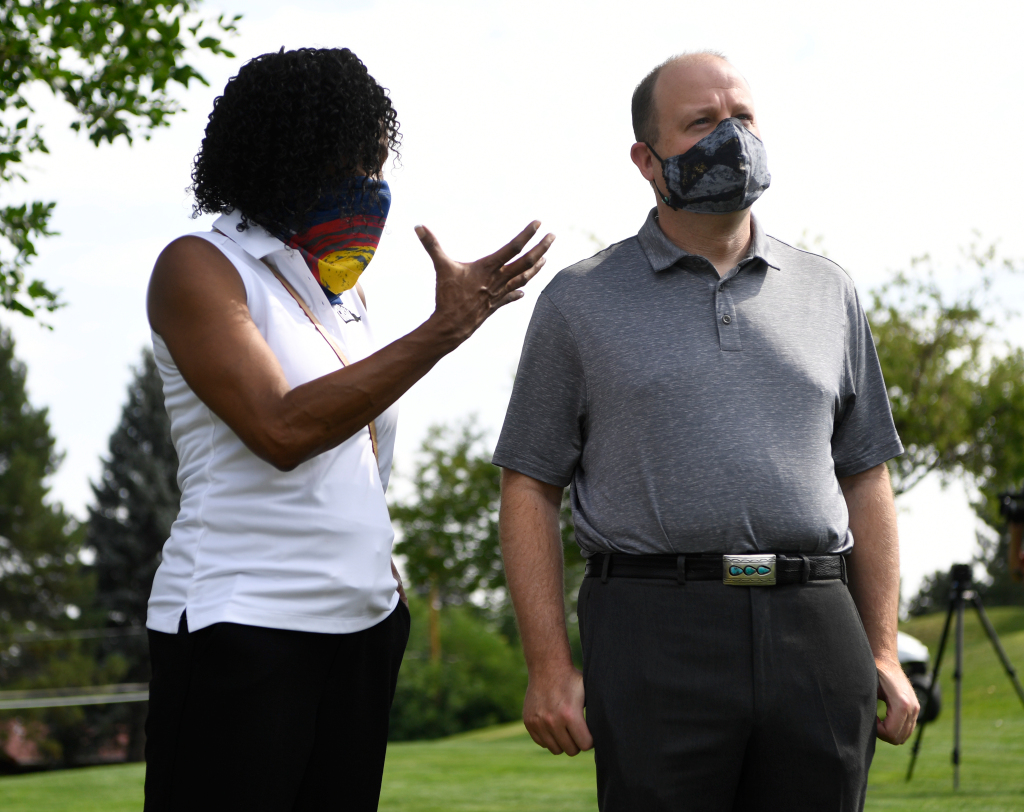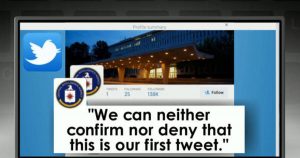Some days, it felt like a bad dream that went by in a blink. Other days, it was more like an eternity.
“I can’t even believe it’s one year ago where we were telling everybody, ‘Don’t shake hands, no team lines,’” CHSAA Commissioner Rhonda Blanford-Green told The Post late last week. “Little did we know. Little did anyone know.”
Colorado is crowning girls and boys prep basketball state champions this weekend at the Broadmoor World Arena, and simply staging the event feels like something of a victory lap for Blanford-Green and her staff.
The 2020 state basketball tourneys at the Denver Coliseum will be remembered for a lot of things. But primarily, they were the Front Range’s last local sporting moment before a pandemic shuttered shops and hopes.
The last chance for a community to enjoy something together before COVID-19 sent everyone home to watch reruns and hoard toilet paper. The last moment of normal.
“I don’t take anything for granted anymore, whether that’s in my professional or personal life,” Blanford-Green said. “I think the pandemic has given us perspective around what we’re being given and what we’re owed or deserved. And I just am thankful for the things that we have been given and the opportunities that we’ve been given on behalf our kids and our schools.”
At 57 minutes before midnight, on the evening of March 12, 2020, with Colorado coronavirus cases trending up and state titles yet to be decided, the organization announced all basketball tournaments would be canceled immediately. What became essentially a four-month blackout on most live sporting events — a stretch from mid-March to roughly mid-July — eventually forced the cancellation of Colorado’s spring prep sports season as well.
The Post sat down with Blanford-Green recently for a short question-and-answer session to reflect on how she’ll look back on this year, and the challenges it brought to her organization:
***
DP: What do you remember of last March, and of the oncoming storm, so to speak?
RBG: “We found out the day of state ice hockey — it was either the semis or the finals — that the first Colorado (COVID) case had been reported. And that’s when it became real … and when you knew you were going to have to start to look at Plan B and Plan C, because we did not know what this meant.
“And then you see the NCAA shut down (the men’s basketball tourney), one of their biggest brands, and it’s like, ‘What did they know that we don’t know?’ And then you saw it trickle down to interscholastic (events) and even when it’s still going, and you had this premonition that this would amount to some tough and some hard decisions that we’re going to be facing in Colorado.
“I was on the phone all day (during the basketball tournaments) with the president of one of the (local) universities and he wanted our event to continue, but there was pressure around from within his community and his regents and his (leadership).
“Once one said they didn’t think this should happen, we started working on a Plan B. And it was, ‘Nope, can’t have this facility.’ And the very next morning, the college president turned down Plan B.”
DP: As the summer progressed and the ’20-21 school year loomed, how close were we to never getting fall football back?
RBG: “We never focused on just football. It was, ‘How close are all sports to not happening?’ The only guaranteed sport we had was golf. And that was because, throughout the summer, they had mitigation strategies and plans around golf. There was already a plan (last) summer how to have golf. I have to say no sports, after golf, had a guarantee of being conducted.”
DP: How do you handle criticism, especially from fans and administrators who argued against shutdowns and safety protocols?
RBG: “Decision-makers became the targets, because people were frustrated, and they just wanted to go back to how it was done. And, again, you had so many different opinions.
“You think you have thick skin and you just prepared yourself for these things that would be distracting, whether that’s social media or whether that’s trying to respond — because of our personal courtesy, I’ve always done that. But you just have to … when you are left with so many new things, so many decisions, being accountable to others, then you have to separate yourself as a person from the job description.”
DP: Is that one of the reasons why you left Twitter?
RBG: “That was a professional and personal decision. Because part of who I am, I want to try to explain how or why, and we’re just at a place in our country where you could not be everything for everybody. So not to (use) those types of platforms … just to not be a distraction for where we’re trying to go, I decided I did not want to contribute to No. 1, the angst; and then No. 2, to just moving away from that goal. Because we all have our opinions around things. And it just seemed to distract from the direction that we needed to go to serve kids.”
DP: How will you remember the last 12 months? How would you describe them for you, personally?
RBG: “Chaotic. Unstable. And in terms of decisions … decisions made by CHSAA always had to have a verification from our state health officials, because we’re dealing with a pandemic. And so everybody, from international to national to state to local, we were all just trying to figure this out. And so what we learned is you have to just be prepared to either adjust or you have to be prepared to make a decision, with (the help of) the experts, with all their data, to guide you.”



















